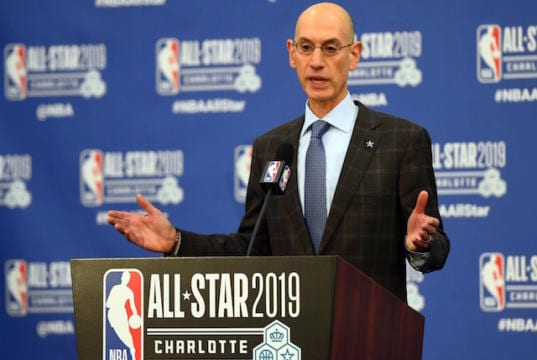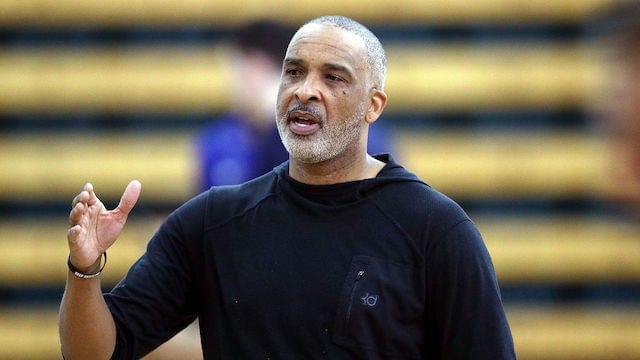The NBA is due to see change in the 2019 NBA Finals as after four years of the Cleveland Cavaliers and Golden State Warriors meeting, a new matchup will be seen. The Warriors remain in position to uphold their end of the bargain, but the Cavs have fallen off without LeBron James.
A change may not necessarily be considered a negative, as some began to speak of fatigue setting in. Aside from James and the Cavaliers mounting an improbable comeback in 2016, the past four Finals have largely been dominated by the Warriors.
Parity and competitive balance were among the topics Adam Silver discussed during 2019 NBA All-Star Weekend in Charlotte, with the commissioner pushing back on the notion that small-market teams are completely prevented from succeeding because of possible financial hurdles.
“I’m always wary in this day and age of data and analytics to use too many anecdotes to create greater points, and certainly you can point to teams like Milwaukee, teams like Oklahoma City, what’s happening in Denver now and Sacramento, as signs that the system is working better than it has historically,” Silver said.
“I’d say we still have work to do, though. “I think in this day and age, it has less to do with small market versus big market. In some cases, it has to do with payrolls. In our cap system, as you well know, it’s a tax-based system, which creates penalties, in essence, for going over the salary cap, but you still end up with fairly large disparities in salaries from one market to another. And often that disparity is not based on the size of the market.
“In certain cases, it’s based on revenue generation, which doesn’t always perfectly correlate. In some cases, it’s based on a willingness of a team to become unprofitable. I think what people recognize is you want parity of opportunity, but you don’t want to artificially create competition that somehow takes away incentives for teams to be great.
“So from where we came historically as a league — remember, this is a league where, if you look at the last, I think, 11 years, we’ve had seven different teams win championships. But if you look back to the first 60 years of this league, I think three teams – the Lakers, Celtics, and the Bulls – won 60 percent of all championships.”
The Boston Celtics reside over the NBA with 17 championships, followed by the Los Angeles Lakers who have won 16 titles. The Chicago Bulls and Warriors each have six and the San Antonio Spurs have five championships. No other team has more than three.
“So those factors concern me a little bit, in that I think there’s still work to be done to create a system where you can create, in essence, more parity of opportunity,” Silver said. He clarified competitive balance must not always mean several teams winning championships.
Silver championed the NFL as the poster child in professional sports for parity, even with taking into account the New England Patriots dynasty.
“I look at the NFL, which among sports leagues, probably has the best parity and the best system in terms of creating competition than any league I’m familiar with, yet the New England Patriots have been in the Super Bowl nine out of the last 18 years. And I don’t think anyone points to that as a sign that the system isn’t necessarily working.”
While content with progress the NBA has made, Silver made it clear the League and Players Association would touch on an array of means to improve competitive balance during negotiations for the next Collective Bargaining Agreement.
Reminder: Vivid Seats is the Official Ticket Reseller of LakersNation.com. New Customers use “LAKERSNATION” (all CAPS) in the Vivid Seats App on your phone and get 10% off any Lakers home game ticket order for the remainder of the season.

